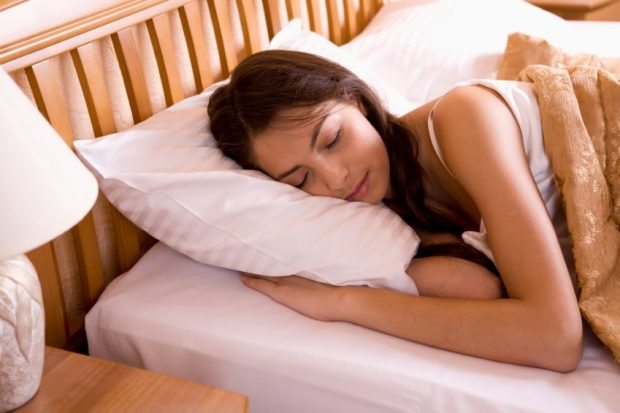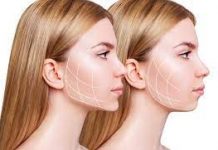
The true secret to a great night’s sleep might go way deeper than turning off electronics or using extra comfy bedding. According to new research, the key to quality rest might be having a purpose in life. A study out of Northwestern University and Rush University published in the journal Sleep Science and Practice this past summer floated this idea, and it’s the first study of its kind.
To find these results, the Northwestern research team explored the sleep patterns of more than 800 people ages 60 and older—but the scientists believe that some of their findings could be applicable to people of all age groups. During the study, the participants were given questionnaires. The surveys included questions about their sleep habits, but it also asked about their satisfaction in life. The survey included questions on whether they feel good about what they’ve done in their past, whether they have a positive view on their future plans, and whether or not they feel that they “wander aimlessly” through life.
Northwestern found that participants who found meaning and purpose in their lives experienced better sleep quality. They were also less likely to experience sleep apnea and restless leg syndrome. While other research has studied the connection between purpose and sleep quality in the past, this study is the first to explore the fact that having a purpose in life can specifically cause better sleep over a long period of time.
Since people who are 60 and older tend to be likely to suffer from insomnia and other sleep issues, these findings just might make a big difference in many lives—especially since many medical professionals prefer to seek out non-drug solutions.
“Helping people cultivate a purpose in life could be an effective drug-free strategy to improve sleep quality, particularly for a population that is facing more insomnia,” said Jason Ong, senior study author and associate professor of neurology at Northwestern’s Feinberg School of Medicine. “Purpose in life is something that can be cultivated and enhanced through mindfulness therapies.”
Because the study participants are seniors, their success in finding better sleep just might have a ripple effect. Seniors tend to have hard-won wisdom that others do not, simply because they have so much life experience to draw upon. If they find a solution for their sleep issues that resonate, they may pass that advice onto their younger family members and friends. That could make for a much happier and healthier overall population.
It’s also worth considering that a person who feels a strong sense of purpose in their life is likely a lot impactful and positive in their overall day to day, not just when sleeping. Humans crave a sense of narrative in their lives, and when we assign meaning to our experiences that resonate with us, it makes sense that we might feel more generally satisfied. In an anecdotal sense, people with a strong sense of purpose often seem to be happier, stronger in their values, and an exceptionally positive influence on their loved ones.
One of the most exciting aspects of these findings is that they hone in on an issue that can be improved. While finding a purpose in life is hardly as simple as snapping your fingers, mindfulness exercises and certain forms of therapy can help. There are even at-home exercises people can do to figure out what gives them the strongest sense of purpose.
For some people, finding that reason to get out of bed comes down to introspection, like pondering questions about what moments in life made them feel most accomplished and alive. For others, it’s all about trying new things until they find what makes them feel the most aligned.
Others may find the most improvement from attending therapy. Experts on this study specifically cited mindfulness-based therapies as a potential next step for people feeling a lack of purpose. This certainly makes sense, as mindfulness can help you ignore all the “noise” in your life to hone in on what really matters to you. Exercises like meditation, yoga, and other mindfulness practices may also help supplement your journey.
In the past, research has linked poor quality sleep to many health issues, including Alzheimer’s disease, heart disease, obesity, and flu, so it’s always worth looking into what might help you sleep better. While each individual case can be different, most adults thrive when they get between seven to nine hours of sleep every night.
If you’ve been struggling to get good sleep, you might want to take the researchers’ lead and dive into better clarifying your life’s purpose through the steps mentioned above. At the same time, try honing in on daily practices that might help, like charging electronics in a room separate from your bedroom, avoiding glowing screens an hour before bed, keeping your bedroom at a cool temperature, getting a sweat on, meditating, trying a natural sleep aid and avoiding caffeine late in the day.
Sources:
https://www.rewire.org/living/purpose-will-help-you-sleep/
https://news.northwestern.edu/stories/2017/july/purpose-in-life-results-better-sleep/
https://sleep.biomedcentral.com/articles/10.1186/s41606-017-0015-6
 Bio: Vinay Amin is the founder of Eu Natural, a premium wellness brand that creates pure supplements formulated to empower your health.
Bio: Vinay Amin is the founder of Eu Natural, a premium wellness brand that creates pure supplements formulated to empower your health.









![Daily Bite [Make]: Philly Cheesesteak Stuffed Bell Peppers](https://dashofwellness.com/wp-content/uploads/2013/01/Philly-Cheesesteak-Stuffed-Pepper-Daily-Bite-1-100x70.png)
